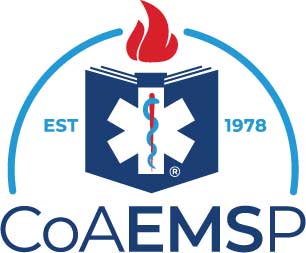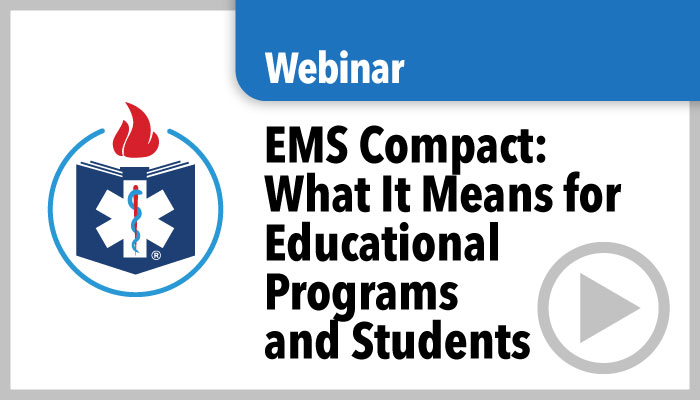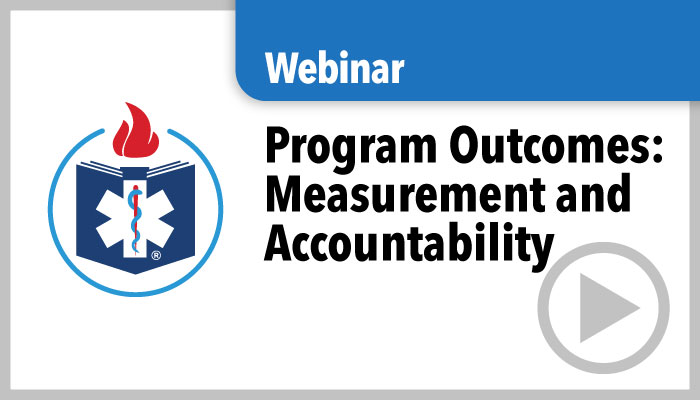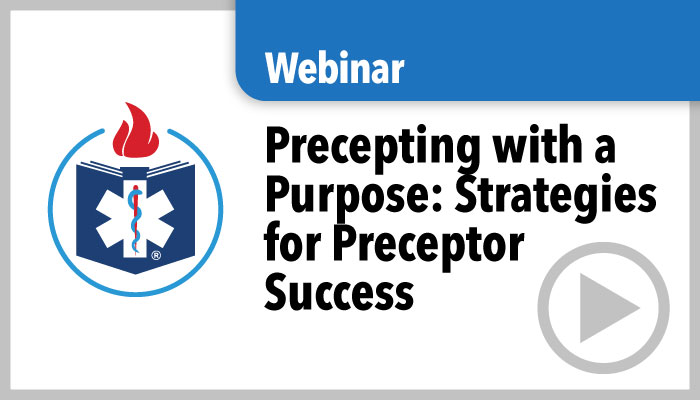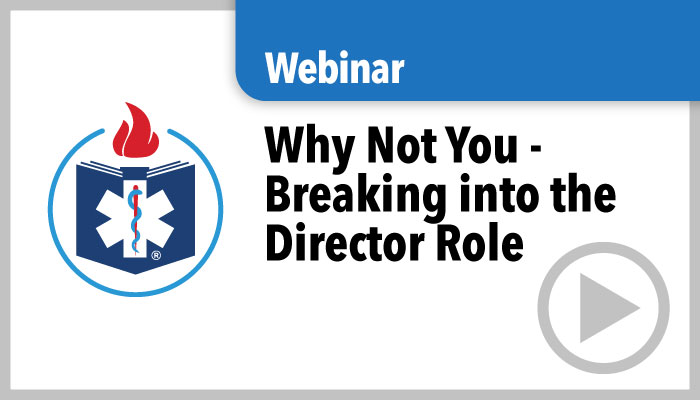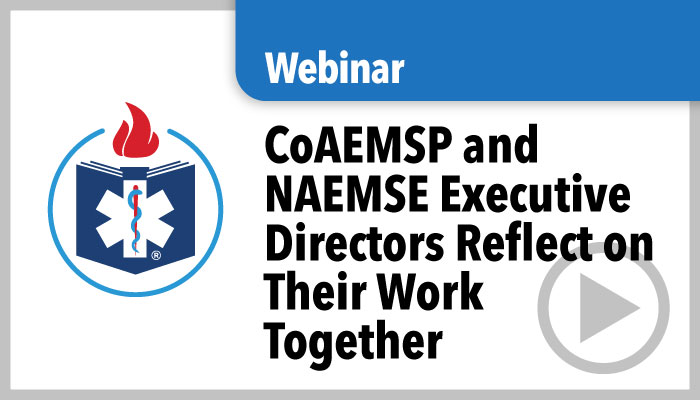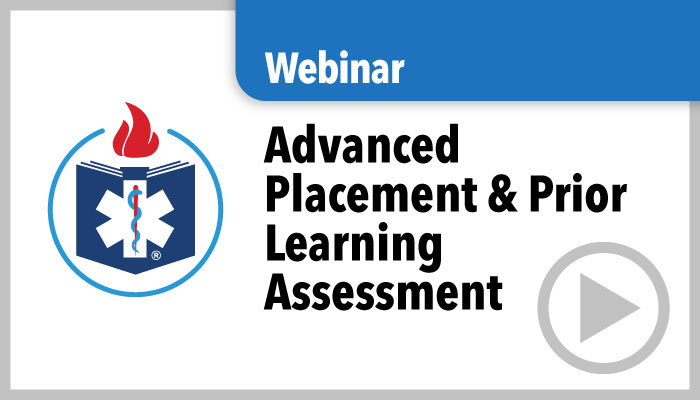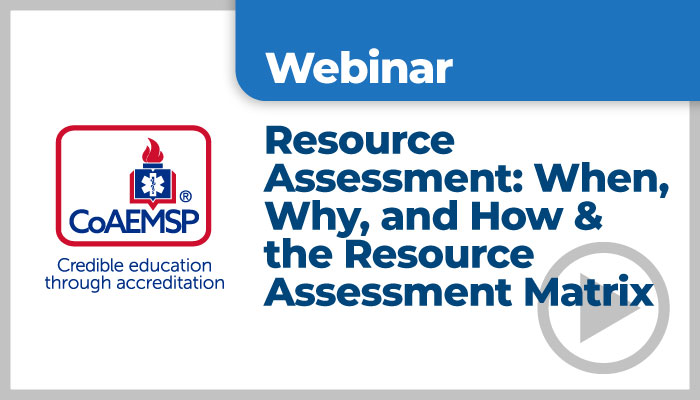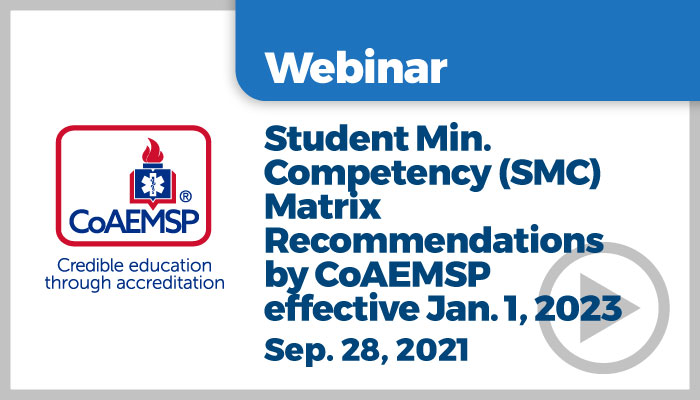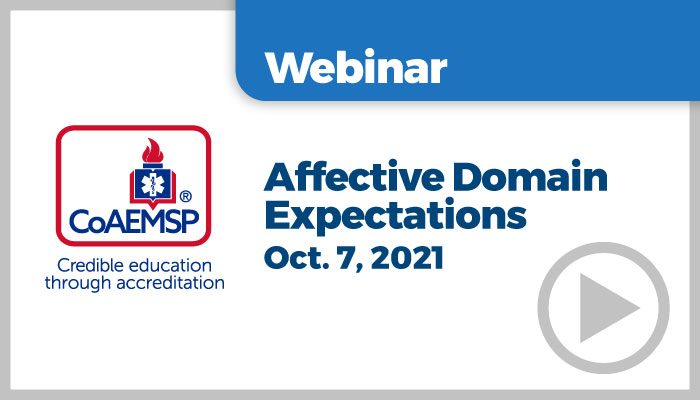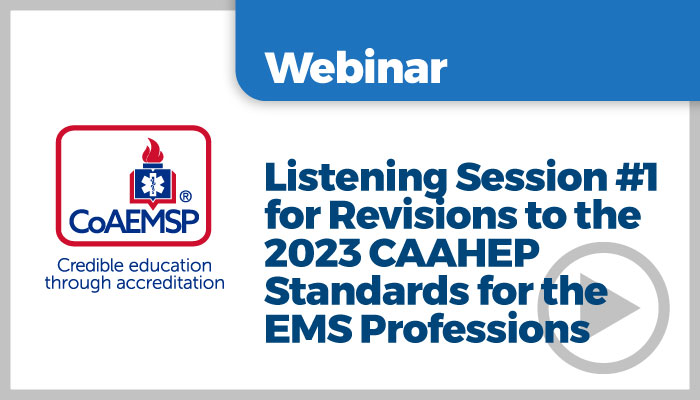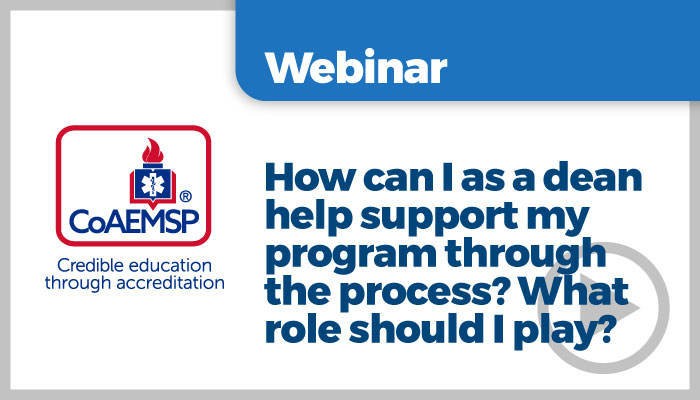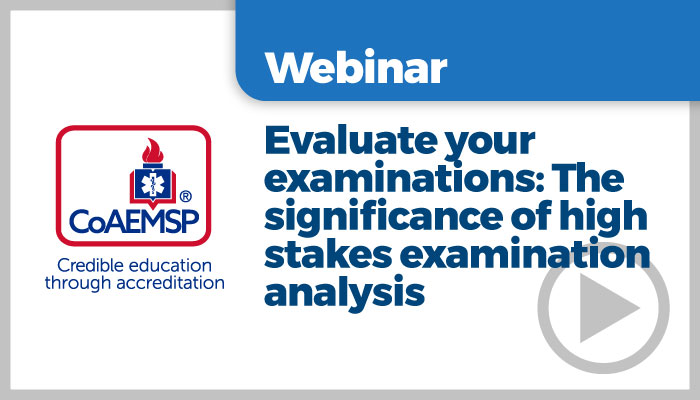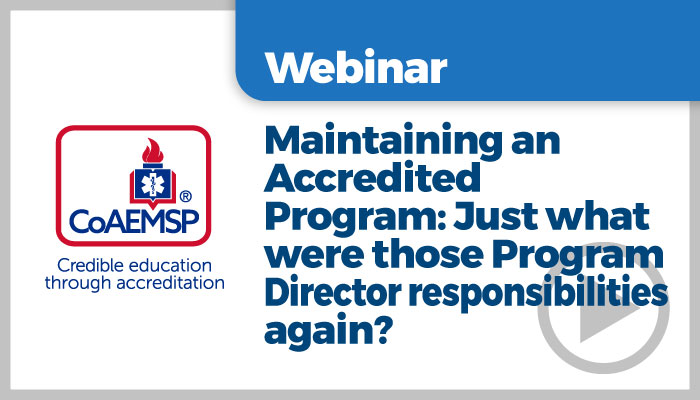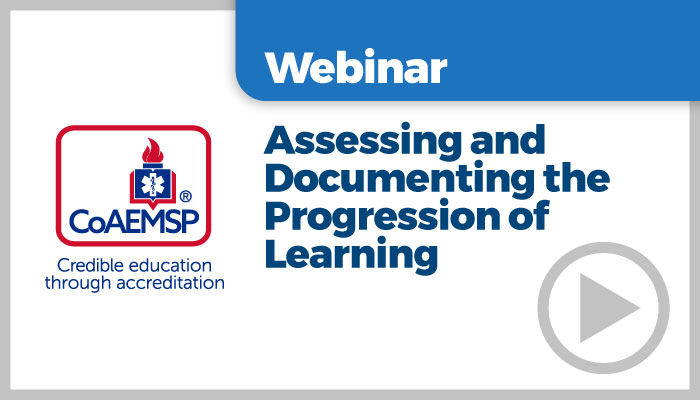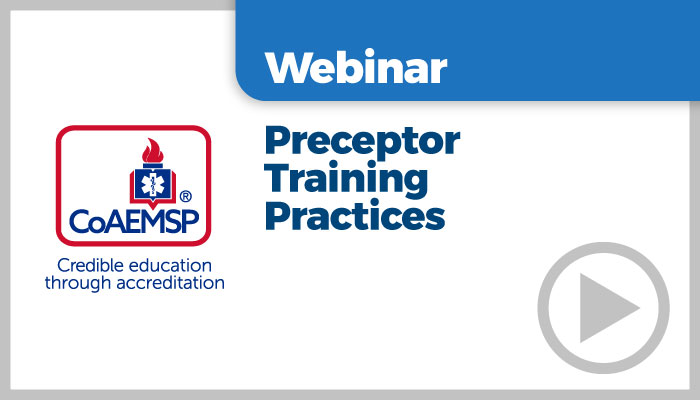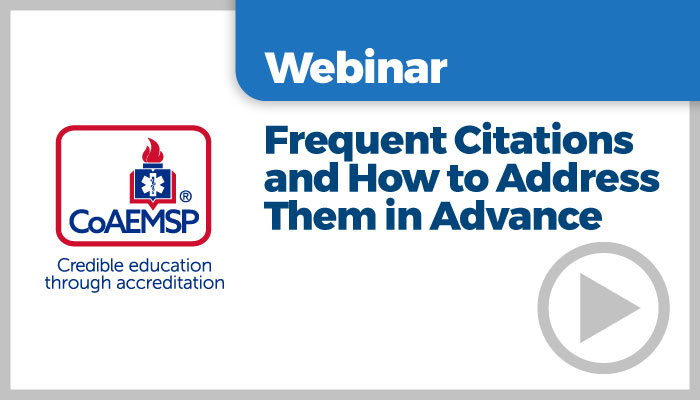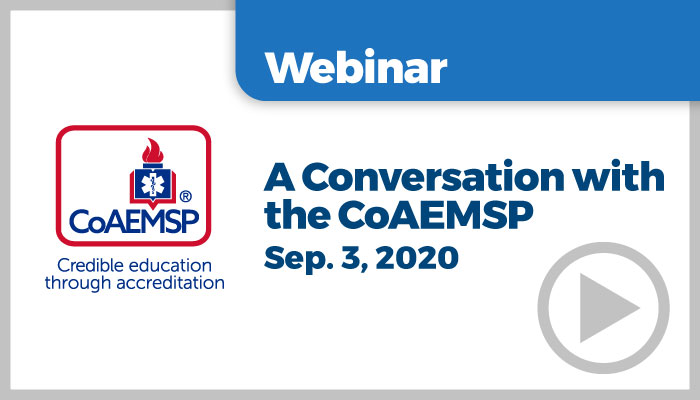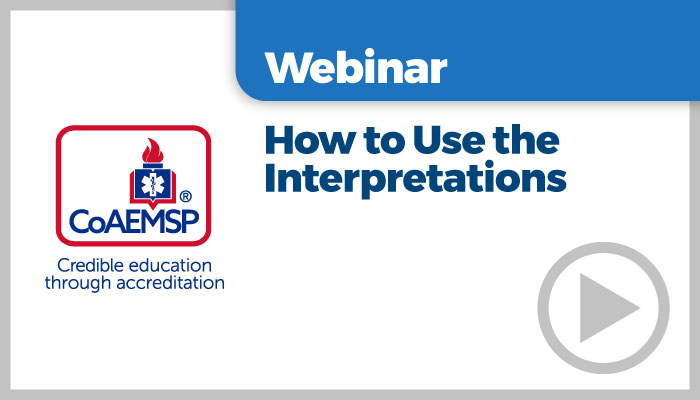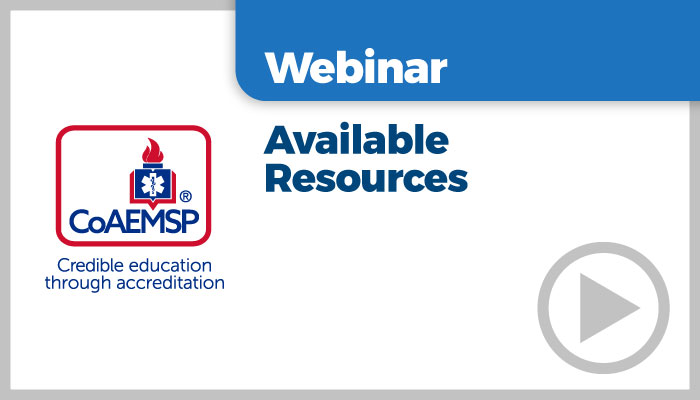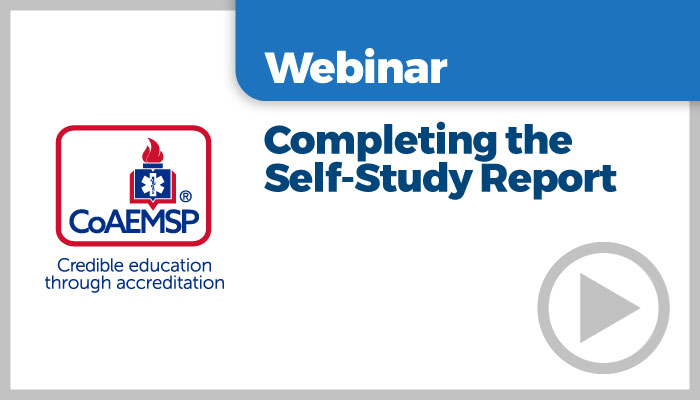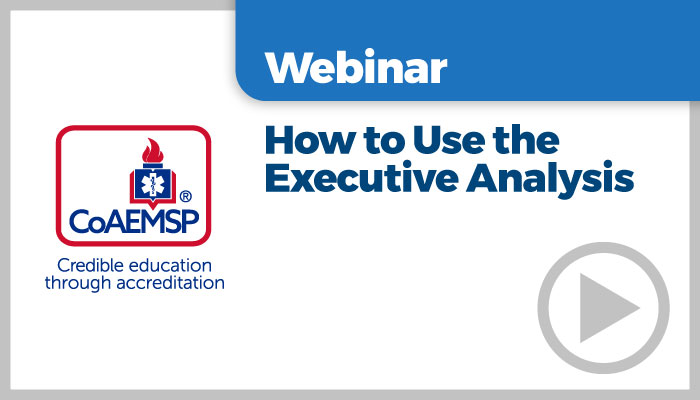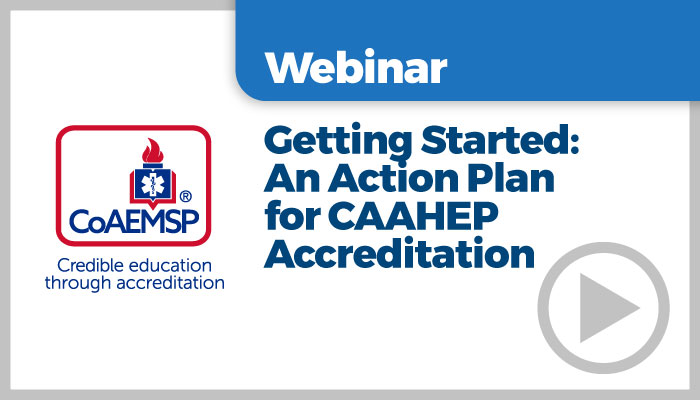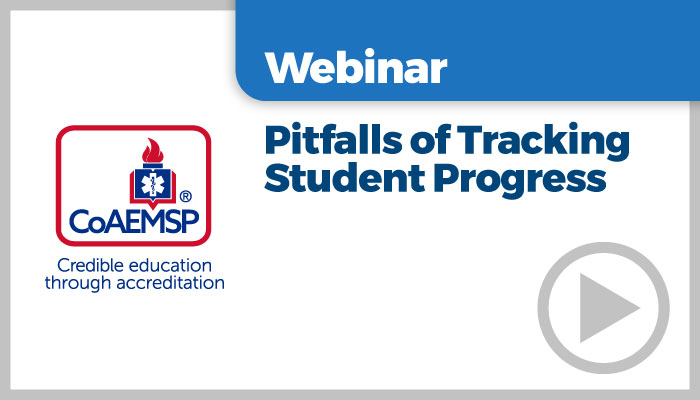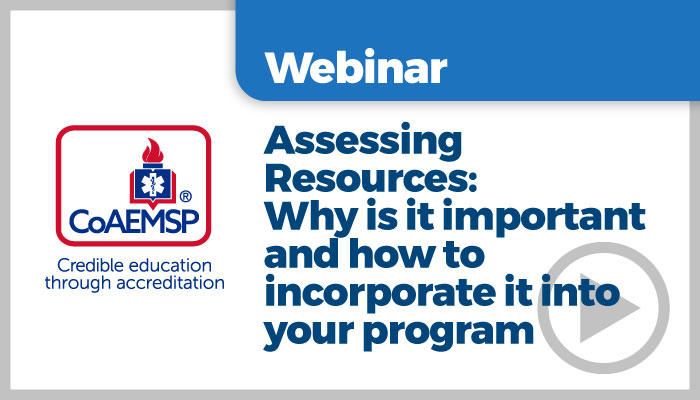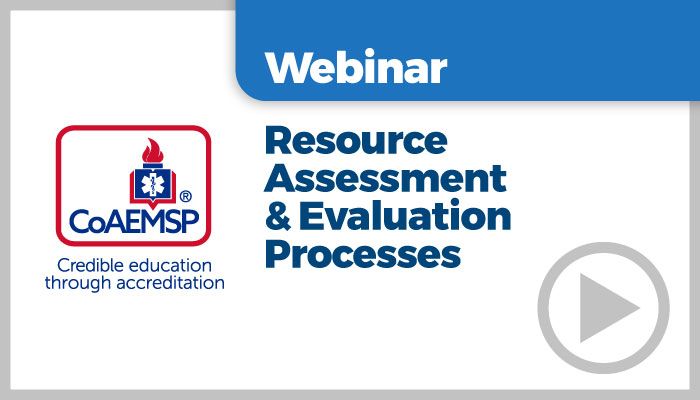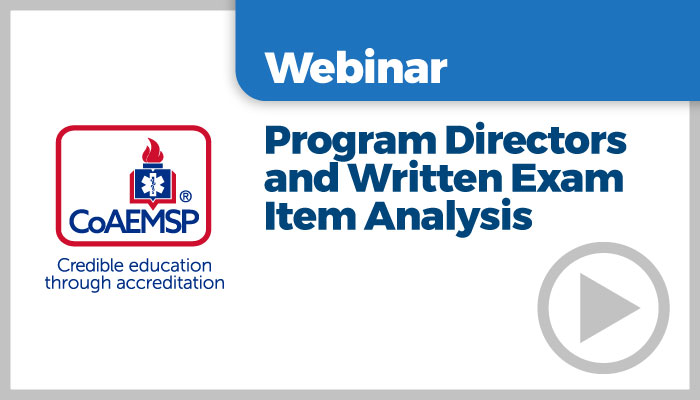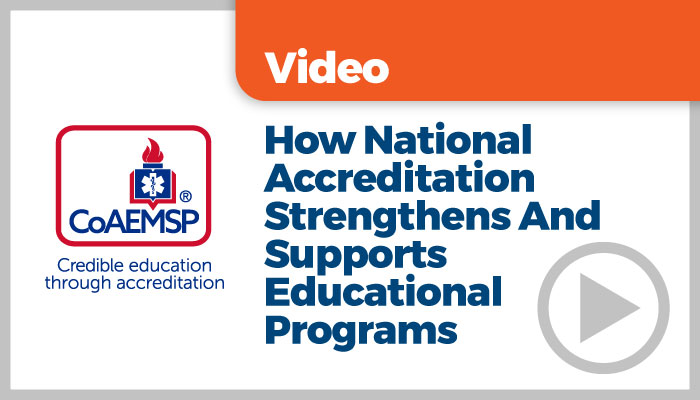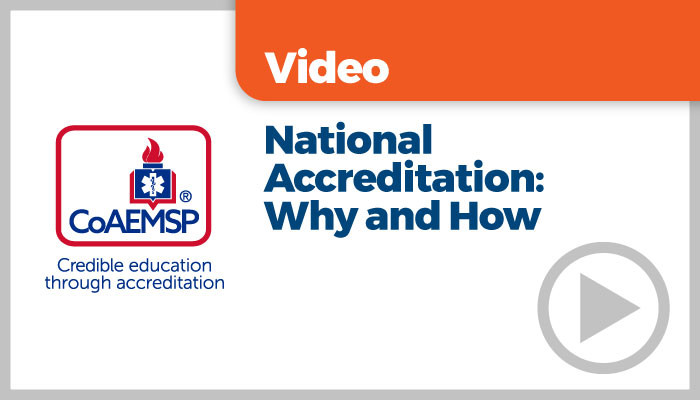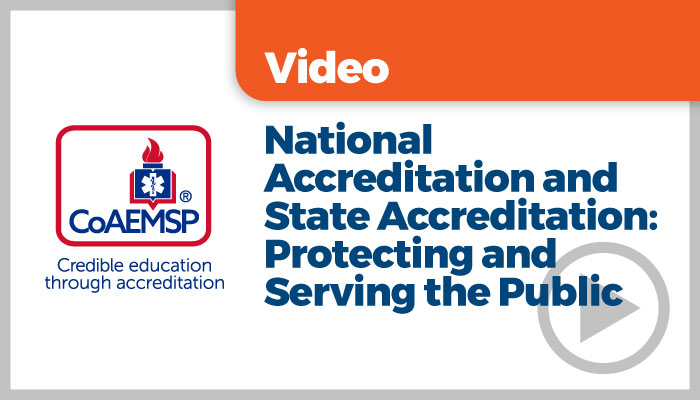

Take advantage of the array of accreditation tools provided by CoAEMSP to assist programs, such as explanations, articles, and webinars.
Upcoming Webinars
All webinars are recorded, unless otherwise stated. Recorded webinars are added to this page within one week of the live session.
Getting Summative Evaluation Right: Understanding and Applying Standard IV.A.1
with Dr. Mike Miller
March 18, from 1-2 PM Central Time
Register NowEnsuring that graduates are competent across the cognitive, psychomotor, and affective domains is central to high-quality EMS education—and it is a core expectation of accreditation. CAAHEP Standard IV.A.1 (Student Evaluation) requires programs to implement summative, comprehensive, final evaluations that clearly measure whether each student has achieved all terminal competencies before program completion. During this session, take a practical, detailed look at what Standard IV.A.1 requires, what the interpretation clarifies, and how programs can build strong, defensible summative evaluation systems. We will explore approaches to ensuring that final evaluations are rigorous, consistent, and based on clear evidence of student competence, including recent changes involving the psychomotor domain.
Orientation for New Program Directors
with Dr. Mike Miller and Patricia Tritt
March 26, from 1-2:30 PM Central Time
Register NowThis 90-minute complimentary orientation is designed for program directors who have been in their role for less than a year. The discussion will provide a high-level overview of the essential, must-know for new program directors. Topics include resources to support success, an overview of CAAHEP Standard categories, key responsibilities of the Program Director role, methods of program assessment, the Program Director Checklist, the accreditation cycle, key administrative processes, responsibilities regarding various program materials, time management tips, and other resources.
Archived Webinars with Supporting Resources
Click on the video graphic to view
- EMS Compact: What It Means for Educational Programs and Students
- Program Outcomes: Measurement and Accountability
- Precepting with a Purpose: Strategies for Preceptor Success
- Why Not You – Breaking into the Director Role
- CoAEMSP and NAEMSE Executive Directors Reflect on Their Work Together
- Distance Education through the Eyes of the CoAEMSP
- Medical Director Responsibilities
- Advanced Placement & Prior Learning Assessment
- Using Pathophysiology for a Basis for Teaching in the EMS Classroom
- Writing Effective Syllabi – Supporting Student Success and Accreditation
- Assessing the Affective Domain
- XR & AI in Simulation
- What is the Executive Analysis?
- Resource Assessment – What is it?
- AI and Healthcare Impact
- Assessing Resources: What are the requirements?
- Student Minimum Competency (SMC) Recommendations
- Does Your Program Outsource Resources?
- Death In Custody
- Creating Exam Items
- Complex Interplay of EMS Education and Workforce
- Writing Effective Syllabi
- Voluntary AEMT Accreditation: Process & Pathway
- Conversation with American Sirens Author Kevin Hazzard on the Incredible Story of the Black Men Who Became America’s First Paramedics
- Implementing the 2023 CAAHEP Standards & Guidelines for the EMS Professions
- Continuous Quality Review: Strategies to Improve the Educational Program
- Fair Practices, CAAHEP Standard V
- Resource Assessment
- Satellites and Alternate Locations
- Student Minimum Competency Recommendations: Are you ready?
- Preceptors – A Cornerstone to a Successful Capstone Experience
- Clinical Coordination
- Strategic Planning: Best Practices
- Retention
- Simulation
- Student Minimum Competency (SMC) Matrix Recommendations by CoAEMSP effective January 1, 2023 – Q&A
- Student Minimum Competency (SMC) Matrix Recommendations by CoAEMSP effective January 1, 2023
- Affective Domain Expectations
- Listening Sessions for Revisions to the CAAHEP Standards for the EMS Professions
- Dean – How Can I Support the Program Director?
- Evaluate your examinations: The significance of high stakes examination analysis
- Maintaining an Accredited Program: Just what were those Program Director responsibilities again?
- Assessing and Documenting the Progression of Learning
- Preceptor Training Practices
- Frequent Citations and How to Address Them in Advance
- A Conversation with the CoAEMSP
- How to Use the Interpretations
- Available Resources
- Completing the Self-Study Report
- How to Use the Executive Analysis
- Getting Started: An Action Plan for CAAHEP Accreditation
- Pitfalls of Tracking Student Progress
- Assessing Resources: Why is it important and how to incorporate it into your program
- Program Directors and Written Exam Item Analysis
National Registry’s Registry Insider
Episode 17 EMS Accreditation
In this episode, Registry Insider host Bill Seifarth, CEO of the National Registry of EMTs, sits down with Dr. George Hatch from CoAEMSP to discuss the significance of accreditation in EMS education.
They explore how accreditation has evolved since its inception in 1978, its critical role in ensuring high educational standards for paramedics, and its upcoming expansion to Advanced EMT programs. Dr. Hatch highlights the value of accreditation in protecting the public and enhancing educational quality, emphasizing the collaborative efforts between CoAEMSP and the National Registry to uphold these standards and prepare competent EMS professionals.
Accreditation Videos
Expert Perspectives on National Accreditation of Paramedic Educational Programs

